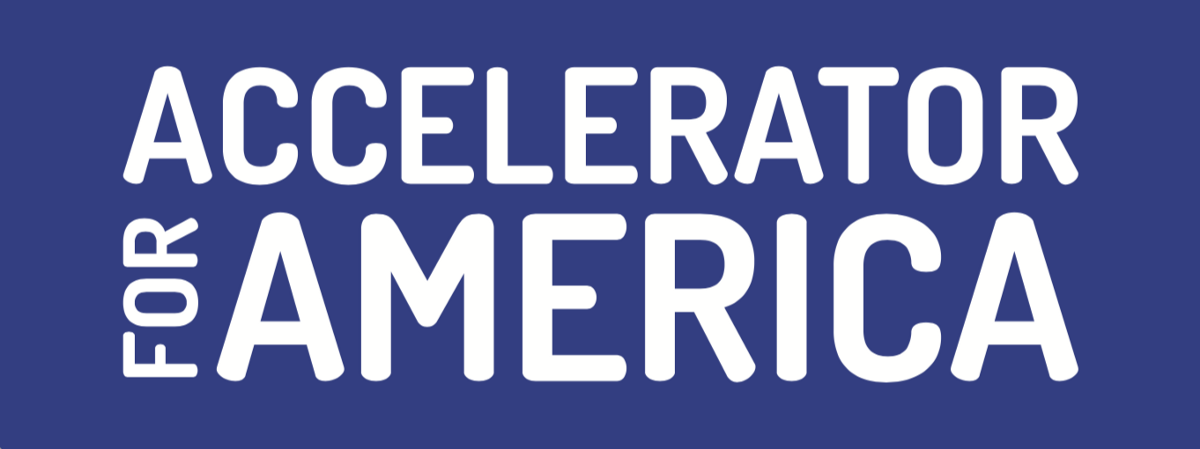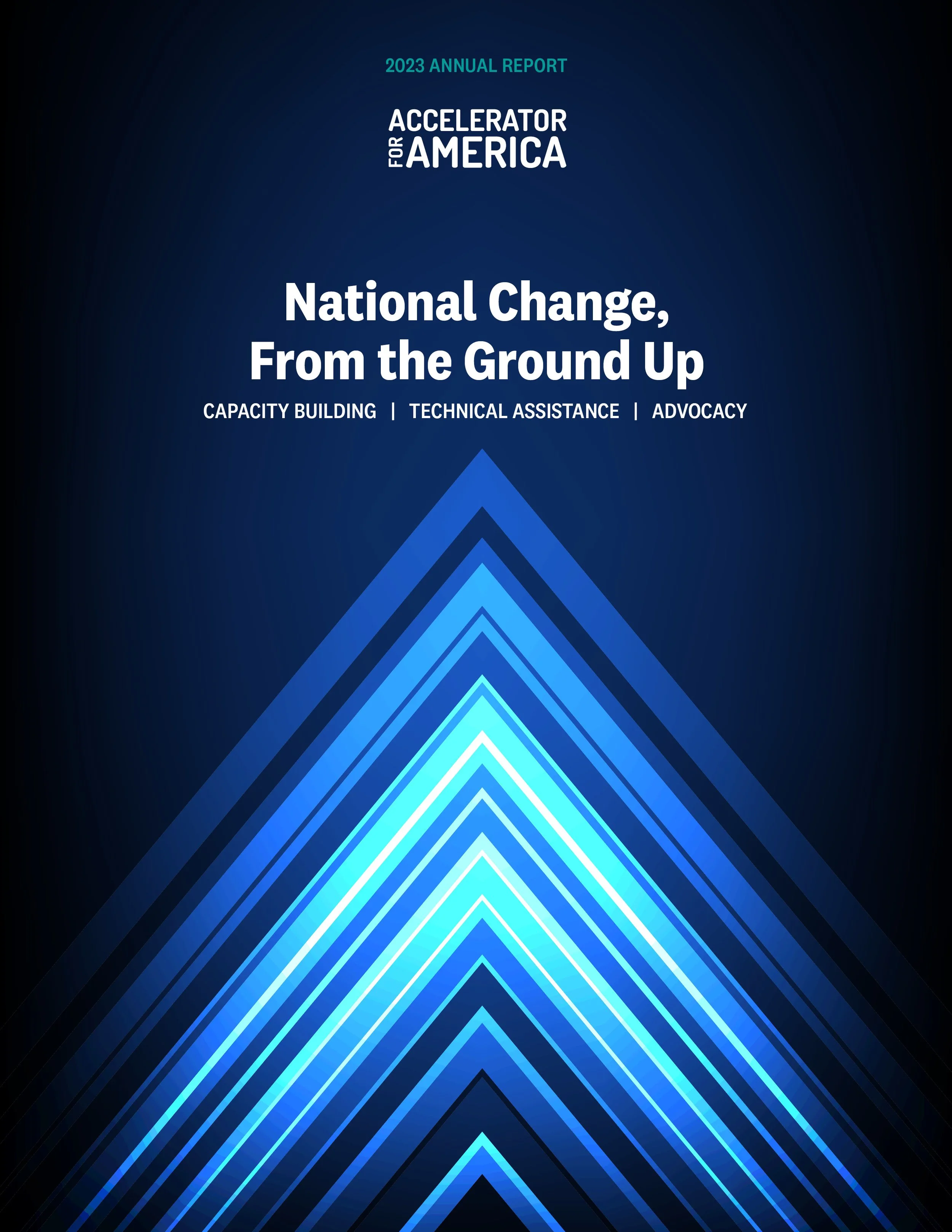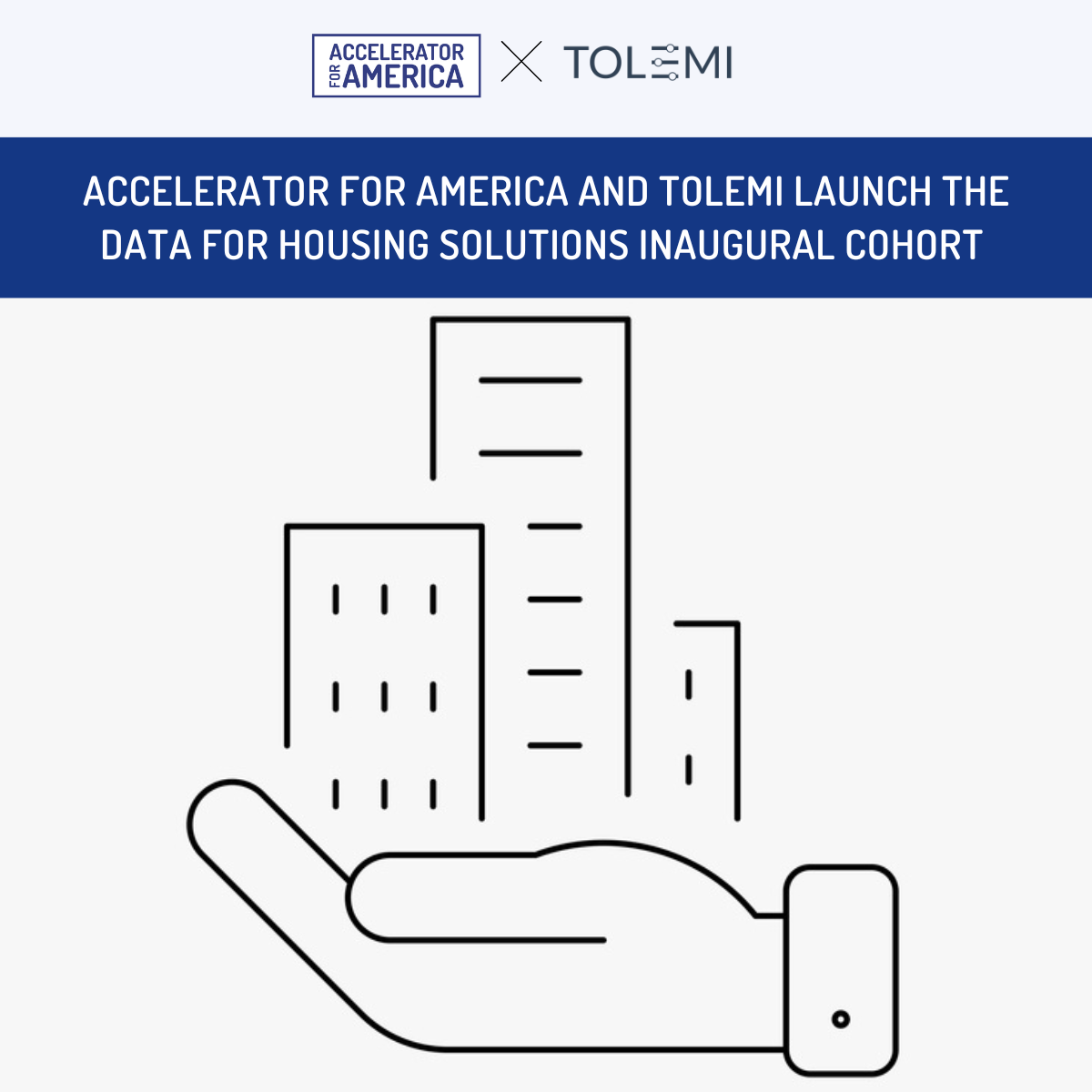This week, Accelerator for America and our partners at the Drexel University Nowak Metro Finance Lab are proud to launch the Funding Pathfinder through the Local Infrastructure Hub.
Read MoreThe time for housing deliberation is over; the time for housing action has begun.
With that simple mandate, the National Housing Crisis Task Force today released From Crisis to Transformation: A Federal Housing Policy Agenda.
Treating the housing crisis like a crisis means the federal government must fundamentally restructure the way it is organized, substantially boost the production and preservation of housing, and take bold action to provide a housing safety net. Taken together, the Task Force’s recommended actions will reduce regulatory barriers and provide sufficient support and incentives to produce more than 750,000 new housing units per year, protect and preserve our existing housing stock, and create the institutions necessary to fundamentally transform the housing sector for the twenty-first century.
As of October 2024, $480 billion of federal funding from the $1.2 trillion Bipartisan Infrastructure Law (BIL) has been announced to support more than 60,000 projects nationally, from traditional bridge repair to demonstrating emerging technologies. This unprecedented funding will help bridge the infrastructure investment gap, strengthen America’s workforce, and mitigate the impacts of climate change. With more than $700 billion remaining, local governments continue to compete for funding and deliver projects for their communities that embrace innovation, including the implementation of emerging technologies, adaptive policies, and community-driven solutions to improve mobility and advance more equitable infrastructure investment.
Read MoreAs housing takes its place as one of the leading national and local issues, topics that we have previously written about like federal government leadership, reducing barriers, mobilizing capital, and industrial policy innovation have rightfully taken center stage. In addition to these key themes, we must not lose sight of the occupants of housing – homeowners and tenants – especially the most vulnerable among them. In our final preview of the National Housing Crisis Task Force’s upcoming national policy agenda, we want to focus on the theme of providing a housing safety net.
Read MoreThe housing crisis necessitates that policymakers do something that they haven’t done for decades: treat housing like an industry. Producing housing at scale requires the nation to invest in an entire ecosystem to bring new homes and apartments to market as quickly and efficiently as possible. This means sparking innovation, bolstering supply chains, and supporting a strong workforce.
Read MoreToday, we want to dive deeper into two additional themes we laid out: mobilize federal capital and assets and reduce barriers and eliminate complexity. Both themes have momentum at the local, state, and even federal levels, with room for even grander vision. They entail a combination of “blocking and tackling” – clarifications, amendments, and building on what works – and bold new approaches to addressing structural housing challenges.
Read MoreHousing is finally having its moment in the spotllght. Not a day goes by without national and local media elevating housing as one of the most central challenges facing our country. The housing crisis, largely subjugated to the sidelines for years, has rightfully become a bona fide election issue. During Tuesday’s presidential debate, Vice President Harris mentioned housing no less than five times. And for good reason.
Read MoreThe United States is in the midst of a
, driven by macro forces and federal investments that are simultaneously pushing for reshoring, re-militarization, and de-carbonization. In this era of unprecedented federal investment and rapid technological change, cities across America are rethinking their approach to economic development with a greater focus on ensuring that the benefits of growth lead to shared prosperity for all residents.
Read MoreIn America today, almost one-third of households are cost-burdened, meaning they spend one-third or more of their monthly income on rent/mortgage plus utilities. Nearly 1 in 6 households spend more than half of their monthly income on housing costs. Home prices in the U.S. have jumped an average of 47% since 2019. This is unsustainable.
Read MoreHousing costs in communities across all income levels in every part of America are skyrocketing. At the same time, there is an increasing need to address climate change and make communities more resilient against heat, storms, flooding, and other climate-related impacts. Recently, Accelerator for America's (AFA) Matt Horton led a discussion for the Accelerator’s Economic and Community Development Practitioners’ Network (ECDPN) that highlighted how local communities are tapping new state and federal initiatives to address both housing affordability and climate change.
Read MoreHalfway through the implementation of the historic IIJA/BIL legislation, local and state leaders are underutilizing the law’s workforce funding potential.
Read MoreAccelerator for America (AFA) and the International Economic Development Council (IEDC) are excited to present the second publication in our two-part series exploring the needs and opportunities to drive more equitable entrepreneurship and small business growth in communities across the U.S. Our first piece, Small Business Capital: A Place-based Approach, published in October 2023, outlined existing disparities and addressed how local governments and place-based philanthropy partnerships can unlock opportunities and pave the way for equitable access to capital for entrepreneurs and small businesses. This piece, Equitable Entrepreneurial Ecosystems: Lessons from the Field, draws important lessons and current examples in action from local practitioners, funders, and national experts who participated in a series of convenings hosted by AFA and IEDC in January and February 2024
Read MoreDuring Accelerator for America’s March and April convenings of our Economic and Community Development Practitioners’ Network (ECDPN), we engaged experts to discuss how communities can leverage tools such as Land Banks, Land Trusts, and Mixed-Income Neighborhood Trusts to create and preserve more affordable housing as Americans coast-to-coast – renters, potential buyers and owners alike – are confronting skyrocketing housing costs.
Read MoreAt the national level, the total cost of natural disasters across the United States is staggering – and it is increasing rapidly with the impacts of climate change. Addressing the far-reaching local impacts of this global crisis will require new municipal and state approaches to insuring the future of our communities.
Read MoreThe Windy City was sunny, warm and welcoming – as was our host, Chicago City Clerk Anna Valencia, as Accelerator for America held its Spring Advisory Council meeting last week.
Read MoreToday, through the Local Infrastructure Hub and alongside our partners at Drexel's Nowak Metro Finance Lab, Accelerator for America is proud to be publishing a local government resource: An Introduction to the Greenhouse Gas Reduction Fund. Similar to AFA's Transformative Projects Case Stories published through the Hub, this Greenhouse Gas Reduction Fund (GGRF) resource provides mayors and local government leadership with key first steps to take in order to ready themselves for this federal opportunity. And, like each Case Story, we are lifting up existing work in communities across the country - St. Louis, Columbus, Philadelphia, and more - to highlight some of the eligible activities and workforce benefits this program can unlock.
Read MoreWe’ve all heard the old saying “information is power.” A recent Accelerator for America (AFA) convening of our “Data for Housing Solutions” cities explored the correlation between corporate and institutional ownership of rental properties and its effect on markets and affordability. With moderation from AFA’s Director of Economic Development Anne Bovaird Nevins, attendees heard presentations from Benjamin Preis, Ph.D, a research fellow with Drexel University’s Nowak Metro Finance Lab who leads its Housing Policy Futures initiative; Chattanooga’s Director of Housing Policy, Sydney Shivers; and Oklahoma City Chief Innovation Officer Dr. Kelly Williams.
Read MoreAccelerator for America announces new members to our Board of Directors and Advisory Council.
Read MoreWe would be remiss if we let January pass without sharing our Annual Report – which details our work in 2023 and now with 80 cities across America and counting!
Read MoreFollowing up on our Clinton Global Initiative commitment, Accelerator for America (AFA) and Tolemi last week hosted the first convening of the 17 cities participating in the Data for Housing Solutions initiative, which leverages a data analysis tool and peer learning to provide insights into local real estate markets. The goal is to use those insights to help preserve and build affordable housing, keep families in their homes, combat predatory real estate investors, and ensure publicly-owned real estate is utilized for the greatest community benefit. The convening was the first in an ongoing series to share experiences and identify findings and strategies.
Read More




















